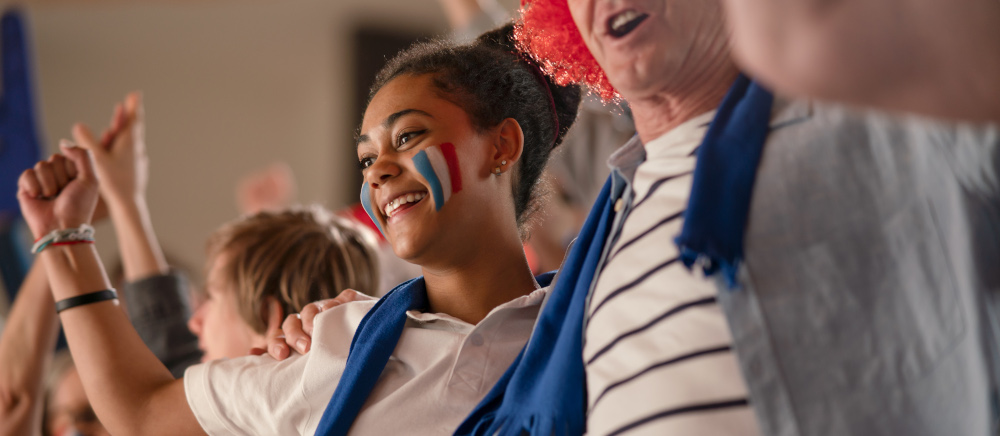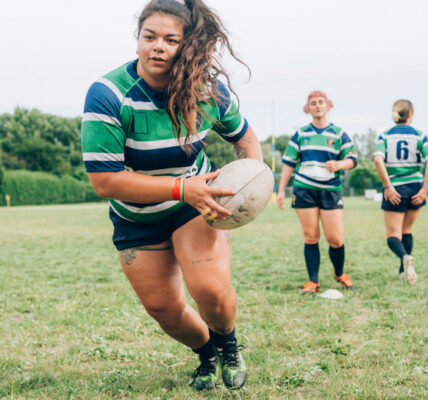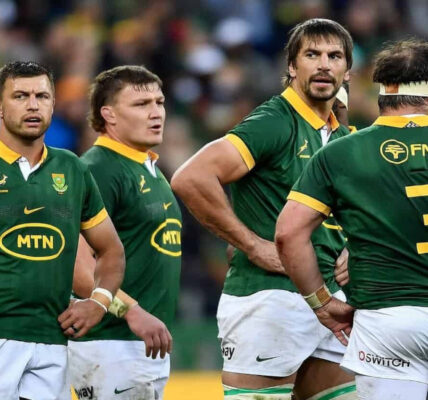On a cool Friday evening in Durban, long before the players have laced up their boots or the first whistle has pierced the air, the rhythm has already begun. A rumble in the stands, low and steady. Somewhere near the halfway line, a group of supporters start up an old chant, half song, half war cry. No one taught them how, no playlist was handed out. Yet, across the province, from school fields in Empangeni to packed Kings Park Stadium, people know the words.
This is rugby in KwaZulu-Natal, not just the scrums, not just the tries, but the music wrapped around it all. It’s the pulse you feel before you even see the ball in play. It’s a soundtrack shaped as much by local flavour as by global sport, stitched together from sideline chants, thumping DJ sets, and spontaneous crowd songs that rise like surf.
Some of these sounds are ancient in rugby terms, songs that have drifted from township matches into formal stadiums. The old Zulu refrain “Shosholoza” has become a de facto national anthem for South African sport, but here, it comes with subtle variations, different drum beats, different paces, sometimes led by a lone voice with a whistle clipped to his lips.
And then there are the newer layers. In KwaMashu or Umlazi, you’re as likely to hear a gqom track blasting from a speaker balanced on the back of a bakkie as you are to hear a more traditional rugby anthem. Tracks from local DJs spin between tries. It’s not official, it doesn’t need to be. The crowd decides what fits.
It’s this blend of the old and the new, the formal and the improvised, that gives KZN rugby its particular audio fingerprint. Unlike in Cape Town, where rugby sometimes holds itself a little stiffly in tradition, or in Pretoria, where things can feel overly choreographed, KZN’s rugby soundtrack feels rougher, freer. Less show, more soul. Ask anyone who’s grown up playing here, and they’ll tell you. The music doesn’t just lift the mood, it sets tempo and tone. A slow, grinding chant might build during a scrum, willing the pack forward. A burst of bass-heavy gqom or amapiano might explode from the stands when a winger makes a break for the line.
The players hear it, too. In interviews, more than a few Sharks regulars have admitted it. What keeps them pushing isn’t always the coach shouting from the touchline. It’s that roar of a song from the stands. That familiar beat shaking the concrete beneath their boots. Even school teams feel it. During provincial competitions at smaller venues, parents and classmates bring hand-drums, improvised shakers made from old soda cans, voices raised in harmony. The goal is as much about rhythm as it is about support.
But it’s not all polished fun. Like any living culture, there are sharp edges. Certain chants get banned for being too rough, too political, too personal. Stadium DJs have to read the room carefully, switching from crowd-pleasers to more neutral tracks when things threaten to get tense. And there are always those moments, particularly after a tough loss, when the silence feels louder than any music ever could. Still, for the most part, the sound of KZN rugby is joyous, raucous, human. It’s a reflection of the province itself, a mix of histories, languages, rhythms. From Zulu anthems to pop remixes, it’s all fair game.
 You’ll hear it at the Murray Cup, one of the province’s oldest competitions, where amateur clubs bring not just players but whole neighbourhoods along for support. You’ll hear it at Sunday school fixtures in Pietermaritzburg, where parents with car boots open double as mobile sound systems. And, of course, you’ll hear it under the bright lights of Kings Park, where stadium DJs have perfected the art of blending classic rugby tracks with local hits.
You’ll hear it at the Murray Cup, one of the province’s oldest competitions, where amateur clubs bring not just players but whole neighbourhoods along for support. You’ll hear it at Sunday school fixtures in Pietermaritzburg, where parents with car boots open double as mobile sound systems. And, of course, you’ll hear it under the bright lights of Kings Park, where stadium DJs have perfected the art of blending classic rugby tracks with local hits.
That blending doesn’t happen by accident. According to one stadium sound engineer, who preferred not to be named because, in his words, “the music isn’t about me”, the playlist is a constant work in progress. Feedback from fans gets taken seriously. “If the crowd doesn’t feel it, you’ll know within seconds,” he laughs. “They’ll let you know with their feet.” And that’s really what makes it unique. The soundtrack of KZN rugby isn’t dictated by sponsors or playlist algorithms. It’s shaped moment by moment, in real time, by the crowd itself.
There are, of course, tracks that have become unofficial anthems. Mandoza’s “Nkalakatha” is practically guaranteed to get airplay before kickoff. Brenda Fassie still holds a place in many stadium playlists. And now, more recently, amapiano beats have begun to nudge in alongside older kwaito and house classics. It’s an evolving, living playlist. It tells you where the game is, culturally, at any given time. More than once, visiting teams from overseas have remarked on it. What they don’t always say out loud but definitely feel, this isn’t the hushed politeness of some rugby nations. This is rugby with a pulse, with bass, with sweat in the air and rhythm on the breeze.
And maybe that’s the point. Rugby in KZN isn’t just a sport you watch. It’s something you feel in your bones, from the first whistle to the last echoing chant. It’s not just what happens on the field but what surrounds it, the food stalls selling bunny chow, the scent of rain on hot tarmac, and the ever-present, unmistakable soundtrack rising up from the stands.
So next time you find yourself at a game, whether it’s a school match in Chatsworth or a test match under Kings Park’s bright lights, pay attention to the music. Listen beyond the tries and tackles. Somewhere in that blend of song and chant, you’ll hear the heartbeat of KZN rugby itself, loud, proud, uncoached, and absolutely unforgettable.




